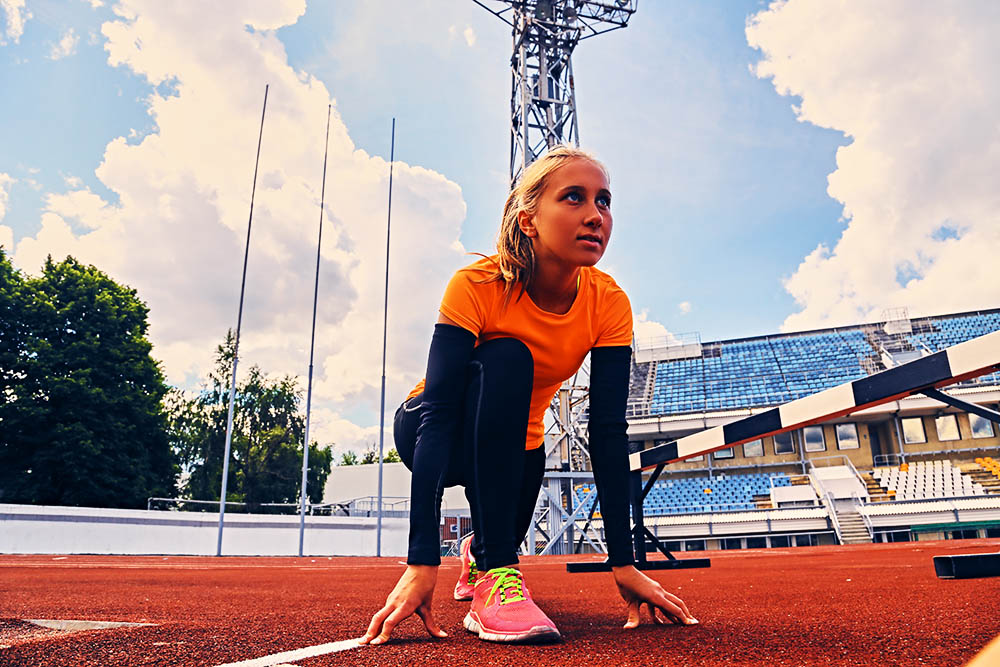Are you looking for ways to improve your physical and mental health while having fun? If so, sports and exercise might be the perfect solution for you. Engaging in physical activities can help you unleash your inner athlete and experience many benefits that go beyond the physical aspect. In this article, we will explore the surprising benefits of sports and exercise and provide useful tips and advice on how to get started and stay motivated.
Physical Health Benefits of Sports and Exercise
One of the most obvious benefits of sports and exercise is the improvement of physical health. Here are some ways that sports and exercise can benefit your body:
1. Improves cardiovascular health: Engaging in physical activities elevates your heart rate, which strengthens your heart muscles, improves circulation, and decreases the risk of heart disease.
2. Enhances respiratory health: Sports and exercise increase the volume of oxygen that the lungs can take in, improving lung function and preventing respiratory illnesses.
3. Boosts immune system: Physical activity strengthens the immune system by increasing the production of natural killer cells and antibodies that help fight against infections.
4. Regulates blood pressure and blood sugar levels: Sports and exercise can help regulate blood pressure, reduce the risk of diabetes, and control blood sugar levels.
5. Strengthens bones and muscles: Sports and exercise promote the growth and repair of muscle and bone tissue, reducing the risk of injuries, fractures, and osteoporosis.
Mental Health Benefits of Sports and Exercise
In addition to the physical benefits, sports and exercise have been shown to improve mental health in numerous ways.
1. Reduces stress and anxiety: Physical activity triggers the release of endorphins, the body’s natural feel-good chemicals, which reduce stress and anxiety levels.
2. Boosts mood and self-esteem: The sense of achievement and progress that comes from engaging in physical activities can enhance mood, self-esteem, and confidence.
3. Improves cognitive function: Sports and exercise can improve cognitive function, including memory, attention, and decision-making, by promoting the growth of new brain cells and connections.
4. Provides social connection: Sports and exercise can provide opportunities for social connection, which is critical for mental well-being. Participating in team sports, classes or clubs can promote social inclusion and reduce isolation.
5. Helps manage mental health conditions: Sports and exercise have been used as a complementary treatment for mental health conditions such as depression, anxiety, and attention deficit hyperactivity disorder (ADHD).
Tips for Getting Started with Sports and Exercise
Starting a new exercise routine can be challenging, especially if you have been inactive for a while. Here are some tips to help you get started and stay motivated:
1. Set realistic goals: Start with small, achievable goals to prevent burnout and keep you motivated. For example, aim to walk for 20 minutes a day or do a few light weightlifting exercises.
2. Establish a routine: Create a consistent schedule that you can stick to. If you struggle to find the time, try fitting in short workouts during your day, such as taking the stairs instead of the elevator or doing pushups during commercial breaks.
3. Find what you enjoy: Experiment with different activities and find what you enjoy. Keep in mind that sports and exercise don’t have to be conventional; you can dance, swim or cycle.
4. Get social: Find a workout buddy or join a class or sports team to help you stay motivated and make it more fun.
5. Celebrate your progress: Celebrate your progress and reward yourself for reaching milestones. This can help you stay motivated and build confidence in your abilities.
Factors to Consider Before Starting a New Exercise Routine
Before starting a new exercise routine or sport, it is important to consider certain factors to ensure safety and prevent injuries. These include:
1. Physical condition: Before starting any activity, it is crucial to assess your physical condition and consult a doctor if you have any existing medical conditions or injuries.
2. Age: Consider your age when choosing activities, as high-impact sports may be more challenging for older adults.
3. Fitness level: Choose activities that match your fitness level, and gradually increase intensity and duration to avoid injury.
4. Environmental factors: Consider environmental factors such as temperature, humidity, and terrain when choosing outdoor activities to prevent dehydration and heat exhaustion.
5. Proper equipment and attire: Make sure to wear appropriate clothing and use proper equipment for each activity, to minimize the risk of injury.
Conclusion
Unleashing your inner athlete can offer a wide range of benefits for your physical and mental health. By taking up sports and exercise, you provide yourself with opportunities for range of physical and mental benefits, which can provide lifelong benefits. Although starting a new sport or exercise routine may be intimidating, it is never too late to get started. Take the first step today, and start unleashing your inner athlete today!
